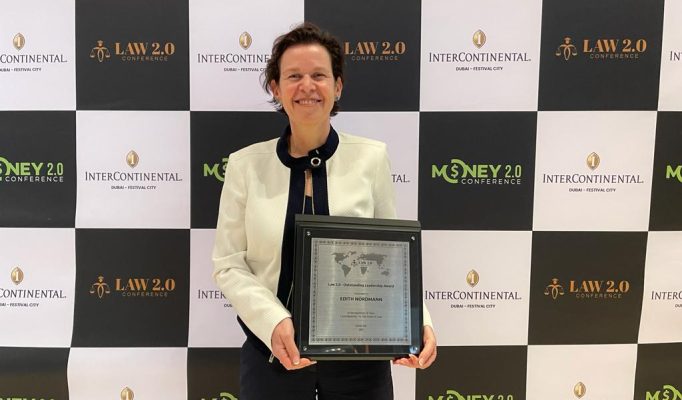In the fight for a more secure Europe, tackling money laundering and terrorist financing (AML/CTF) is high on the agenda. Recently, the European Council and the European Parliament reached provisional agreement on key AML/CTF measures (the regulation: ‘AMLR’ and the directive ‘AMLD6’), highlighting the urgency of this issue.
A notable step in these measures is the creation of an overarching European money laundering authority, the European Anti-Money Laundering Authority (AMLA), which will have its home base in Frankfurt. The aim of this overarching AMLA: a paradigm shift in the unified approach to money laundering at the European level.
Amid these developments, however, came surprising news that undermines the big Dutch banks’ joint money laundering approach: their joint money laundering approach does not comply with European legislation (AMLR). In other words: this must stop!
The recent article in the Financieel Dagblad (dated 25 February 2024), unveiled that Transaction Monitoring Netherlands B.V. (“TMNL”), set up by leading Dutch banks ING, ABN AMRO, Rabobank, Triodos Bank and Volksbank, may not continue in its current set-up. The reason is clear: joint money laundering investigations are only allowed under strict conditions. The current modus operandi lacks a legal basis, and the ‘Wwft and Sanctions act Guidance from the Dutch Central Bank’ (“DNB”) also stresses that outsourcing of transaction monitoring by third parties is not possible.
Background: monitoring obligation banks
Banks are obligated under Dutch (and European) legislation, specifically the Anti-Money Laundering and Anti-Terrorist Financing Act, in Dutch: “Wet ter voorkoming van witwassen en het financieren van terrorisme” (“Wwft”), to scrutinize all financial transactions conducted by their customers for potential criminal activities. This monitoring obligation encompasses not only individual consumers but also businesses and organizations.
TMNL
On July 10, 2020, the aforementioned Dutch banks established TMNL. In a collaborative effort, they committed to combatting financial crime by collectively monitoring payment transactions from participating banks for potential indicators of money laundering and terrorist financing. Transactions exceeding €100 are shared within this distinct entity, allowing other banks participating in TMNL to access this data on a comprehensive scale. Since its inception, this initiative has sparked controversy and faced strong criticism from entities such as the Council of State and the Dutch Data Protection Authority (“AP”)re, citing significant concerns about (gross) privacy violations of bank account holders. TMNL, in its current design, has been labeled as a form of “mass surveillance” and a “dragnet” by entities including the Consumers’ Association, the Court of Auditors, and the Council of State.
Despite the significant criticism, the participating banks have continued to share banking transactions on an extensive scale over the past 3.5 years. Operating without a legal national or international basis, the Netherlands opted to permit major banks to surpass the prescribed international standards. Brussels has now intervened, putting an end to this practice.
Putting an end to TMNL?
Drawing insights from the aforementioned AMLR, it becomes evident that data sharing concerning money laundering and terrorist financing is now restricted to high-risk customers. However, TMNL incorporates all risk profiles, disregarding whether a customer is categorized as low or high risk. This mismatch raises concerns, as highlighted in the letter from Finance Minister Steven van Weyenberg, where the Netherlands expresses significant reservations about this aspect of the AMLR. The letter, while not presenting a unified stance on TMNL’s fate, emphasizes the crucial role of data sharing in effectively combating money laundering and terrorist financing. The path forward for TMNL remains uncertain, but it is apparent that a comprehensive re-evaluation is necessary – back to the drawing board!
What does this mean for bank customers?
For bank customers, the recent development around TMNL and European legislation (AMLR and AMLD6) represents a significant change in terms of privacy and how their financial transactions are monitored. Customers, both individuals and businesses, should be aware of the stricter controls on their transactions, aimed at identifying possible money laundering activities. This may lead to more enquiries from banks about specific transactions, which can sometimes be perceived as uncomfortable or invasive. On the other hand, this also provides a protection mechanism against abuse of the financial system and contributes to a safer financial environment for all.
What does this mean for service providers?
For service providers, including financial institutions and legal entities advising clients on compliance with the Anti-Money Laundering and Anti-Terrorist Financing Act (Wwft), the recent developments pose both challenges and opportunities. Service providers must adjust their offerings to meet the new legal requirements, potentially revising their transaction monitoring systems to align with the updated European standards. This adaptation might involve incorporating more advanced technologies or refining procedures to ensure the effectiveness of detecting suspicious activities without unduly compromising customer privacy.
Simultaneously, this situation presents service providers with an opportunity to establish themselves as leading experts in Anti-Money Laundering (AML) compliance. By offering clients high-quality advice and support in navigating the intricate landscape of financial regulation, legal advisers and financial services providers can position themselves as valuable resources. Continuous updating of knowledge is crucial for these professionals to deliver solutions that are both effective and compliant, serving the dual interests of clients and regulatory requirements.
ACG International is here for you – Take the step to worry-free compliance in all your banking matters and challenges now!
We understand that recent developments may raise questions and concerns. Our team of experts offers tailored advice and practical solutions to ensure your business is compliant with the latest AML/CTF regulations, while striving to minimise any disruptions to your business operations. Whether you are facing questions from your bank or are concerned about compliance, ACG International is ready to support you with expert advice and effective strategies.
ACG International’s specialists regularly assist clients with Wwft challenges and have relevant compliance experience. Whether this involves opening or maintaining a bank account, or answering bank queries or other compliance issues.
In the worst-case scenario, entrepreneurs even risk having their accounts cancelled purely because they are considered ‘high risk’ according to bank policy. Whether this is justified or not, we are happy to help.
Are you facing challenges with your bank or financial services provider, potentially resulting in the termination of your bank account or agreement due to Wwft-related issues? ACG International always provides a personalised solution tailored to your unique situation and the complexity of your case, whether it is support from an experienced lawyer or a team of specialists. We offer suitable support for both small and large entrepreneurs, tailored to the specific challenge and within your budget.


